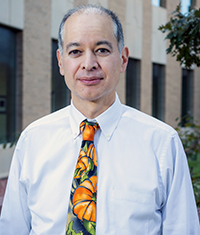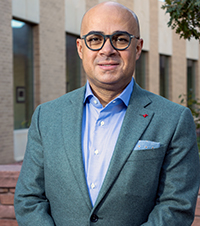Research Faculty
| Researcher | Research Summary |
Key areas of focus: epilepsy, cellular mechanisms, electrophysiology, pediatric neurosurgery Dr. Alexander is a neurosurgeon-scientist whose daily goal is to improve the lives of children with epilepsy by offering today’s best surgical treatments to appropriate patients and by investigating the underlying mechanisms of epileptogenesis in order to contribute to the promise of new treatments in the future. Techniques in the lab include: slice electrophysiology in human tissue resected during epilepsy surgery, slice electrophysiology in rodents, in vivo video-EEG recording in rodents, and immunohistochemistry in humans and rodents. Currently, the main focus of the lab is investigating the mechanisms leading to seizures in focal cortical dysplasia, a malformation of cortical development that leads to seizures in children. This work is being carried out in parallel with both human tissue and a novel mouse model of focal cortical dysplasia. Another focus of the lab is determining how vagus nerve stimulation, a clinically-used treatment for medically refractory epilepsy, exerts its anti-epileptic effects. Allyson Alexander Lab | |
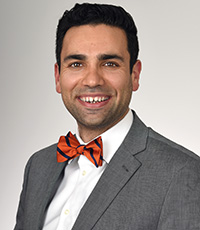 Mohammed Alshareef, MD | Key areas of focus: neonatal intraventricular hemorrhage, neonatal brain injury, neuroinflammation, complement immunology, pediatric neurosurgery Dr. Alshareef is a neurosurgeon-scientist who focuses his work on finding treatments for children with neonatal post-hemorrhagic hydrocephalus. In his research, Dr. Alshareef aims to identify the underlying causes of hydrocephalus. Dr. Alshareef’s lab evaluates how the complement immune system is activated and regulated following neonatal intraventricular hemorrhage (IVH). IVH is a devastating disease for neonates and leads to over 90% morbidity and mortality while having no viable medical or surgical interventions. In his previous research, Dr. Alshareef has found that complement system inhibition leads to reduced brain injury and lower hydrocephalus rates in an animal model. He’s currently focusing on better understanding the mechanism of injury following IVH in both animals and humans. Dr. Alshareef’s research goal is the development of medical therapies for the treatment of post-hemorrhagic hydrocephalus. |
| Key areas of focus: hemorrhage, stroke, endovascular Dr. Case’s research focus is on subarachnoid hemorrhage within the brain and spinal cord; embolization of head and neck vascular malformations using different microcatheter techniques; intracranial aneurysm treatments and repair; and advancing treatments for neuro-critically injured patients. He also specializes in the treatment of patients with ischemic stroke, hemorrhagic stroke, and endovascular treatment of patients with stroke large vessel occlusions and carotid artery stenosis |
| Key areas of focus: intracranial hemorrhage, stroke, neuro-critical care Dr. Cava is the Co-Director of the Neurocritical Care Fellowship at the University of Colorado Hospital. His research interests revolve around the treatment of subarachnoid hemorrhage, as well as treatment of co-morbidities arising from the management of acute neuro-critical care patients. In particular, early detection and treatment of vasospasm, microemboli, systemic hemodynamic changes, and increased intracranial pressure. His work and research are aimed towards having an integrative and comprehensive approach in the care of our patients, especially in the ones with subarachnoid hemorrhage and ischemic stroke. |
| Key areas of focus: performance validity tests, cannabis Dr. Domen’s research interests include analyzing the utility and best practice use for commonly administered neuropsychological performance validity indicators among specific neurological patient populations. His interests also include examining the use of cannabis products by neurological patient populations in Colorado and the cognitive impacts of using cannabis. |
| Key areas of focus: deep brain stimulation, electrophysiology, and ethics Through a large multisite collaboration, Dr. Gault’s research is focused on resolving ethical concerns and identifying electrophysiological biomarkers relevant to conducting a clinical trial of deep brain stimulation to treat symptoms
of psychosis in subjects with schizophrenia. Judith Gault Lab |
| Key areas of focus: brain tumor, exosomes, neurological tissue samples Dr. Graner’s laboratory pioneered the field of brain tumor exosomes/extracellular vesicles in all their aspects: biology, physiology, immunology, pathology, and as biomarkers of disease, and continues to be a major source of exosome resources for the Campus and beyond. We combine this expertise with our duties involving the Neurosurgery Neural Tissue Bank where we perform drug screening on patient-derived tumor cell cultures to determine potential personalized treatment regimens. Our access to neurosurgical samples allows for our many studies in areas such as brain tumors, traumatic brain injury, stroke, multiple sclerosis, and other neurological diseases and disorders. |
| Key areas of focus: Down syndrome, Alzheimer’s disease, Parkinson’s disease, biomarker development, neuropathology Dr. Granholm-Bentley is a Swedish neuroscientist and a Professor in Department of Neurosurgery at University of Colorado Anschutz Medical Campus and an Adjunct Professor in the Division of Geriatrics at the Karolinska Institutet in Stockholm, Sweden. She has published more than 170 peer-reviewed articles; most of them related to aging and neurodegeneration including Parkinson’s disease (PD), Down syndrome (DS), and Alzheimer’s disease (AD). Dr. Granholm-Bentley is currently funded by the National Institutes on Aging (NIA) to work on tau pathology in individuals with Down Syndrome and Alzheimer’s disease and she has focused her recent work on novel biomarkers for neurodegenerative conditions, especially neuron-derived exosome (NDE) biomarkers as well as neuropathological studies of PD, AD and DS-AD. Dr. Granholm-Bentley is the lead PI for a funded biobank consortium focused on brain donations from persons with DS throughout the lifespan, with 10 sites in the US, Europe, and India. Dr. Granholm-Bentley leads a multi-PI research program focused on concussion biomarkers in sports-related injuries. Another current project with the University of Kentucky investigators is focused on evaluation of efficacy of intracranial sural nerve grafts in patients with PD. Granholm Neurodegeneration Lab |
| Key areas of focus: pediatric craniopharyngioma, tumors, pediatric neurosurgery, spinal instrumentation and hydrocephalus Dr. Hankinson’s research focuses on 2 areas: His primary interest is in the brain tumor Adamantinomatous Craniopharyngioma. We assembled and lead Advancing Treatment for Pediatric Craniopharyngioma (ATPC), which is North America’s only multicenter consortium dedicated to research into this tumor. We study both the surgical and clinical features of this tumor, which has led to the recent development of clinical trials of novel therapies. We also perform basic science research regarding growth mechanisms and inflammation within this tumor. We work in a highly collaborative manner with other labs and clinical research groups in North America and Europe. Further, we use Adamantinomatous Craniopharyngioma as a model system to develop novel machine learning methodologies that can be applied in the context of relatively uncommon diseases. Dr. Hankinson is also very involved in multicenter research efforts in pediatric neurosurgery. He is actively involved with groups that study hydrocephalus, pediatric spine instrumentation, and Chiari Malformation. Todd Hankinson Lab |
| Key areas of focus: neuropsychological indicators, neuropsychology database Dr. Hoyt is a Board Certified Clinical Neuropsychologist and the Head of the Division of Neuropsychology in the Department of Neurosurgery at the University of Colorado School of Medicine, which is the only neuropsychology service at this academic medical center. He is part of a research program which provides training, supervision, and oversight to multiple professional research assistants specially trained in the administration and scoring of neuropsychological instruments. The research program is involved in multiple studies and clinical trials in a variety of neurologic conditions (e.g., Alzheimer’s disease, multiple sclerosis, epilepsy, Parkinson’s disease, concussion/TBI). In addition, he is the Principal Investigator for the Neuropsychology Database, a project which enrolls several hundred participants annually. |
| Key areas of focus: malignant gliomas, neurosurgery tissue bank, vaccine therapy Dr Lillehei is the Ogsbury-Kindt Professor of Neurosurgery and the Chair of the Department of Neurosurgery, University of Colorado Anschutz Medical Campus. Dr. Lillehei is Director of the Neurosurgery Neuro-Tissue Bank with his research interests revolving around the treatment of malignant gliomas. In particular, he is interested in studying the role of the immune system in intracranial tumor recognition, its role in the tumor micro-environment, and the impact of the immune system on tumor eradication. His research has also revolved around exploring the use of various tumor vaccines as adjuvant therapy for the treatment of malignant gliomas. |
| Key areas of focus: trauma, cerebral oxygenation, intracranial hemorrhage Dr. Neumann is the Director of the Neurological Intensive Care Unit and Co-Director of the Stroke Program at the University of Colorado Hospital. His primary research focuses on the cerebral oxygenation in trauma patients. This includes analyzing aspects and optimization of various drug management practices in patients with overwhelming Neurological illness. Another major area of his research has been in identifying and anticipating potential complications before they become critical in patients suffering sundry systemic and neurological maladies. |
| Key areas of focus: movement disorders, epilepsy, neuromodulation As the Director of Stereotactic and Functional Neurosurgery in the Department of Neurosurgery, Dr. Ojemann specializes in the surgical treatment of movement disorders and epilepsy. His research interests in these areas include investigations into human electrophysiology related to movement, speech, and language, Robot-assisted stereoencephalography, and advanced imaging of targets for Deep Brain Stimulator implantation. He has led the surgical effort at the University of Colorado on two multi-center trials of intracranial infusions of gene therapies for the treatment of Parkinson’s disease. In collaboration with Dr. John Thompson, a computational neuroscientist within the Department of Neurosurgery, Dr. Ojemann contributes to significant advances in the understanding of the human brain made possible by a multi-site consortium focused on human single-neuron recordings. |
| Key areas of focus: tumor, neuroimaging, ischemic injury Dr. Ormond has two laboratories.Brain Tumor Imaging Laboratory: In the treatment of brain tumors, surgical intervention remains a common and effective therapeutic option. Recent advances in neuroimaging have provided neurosurgeons with new tools to overcome the challenge of differentiating healthy tissue from tumor-infiltrated tissue, with the aim of increasing the likelihood of maximizing the extent of resection volume while minimizing injury to functionally important regions. Additional new technologies are in development to improve the safety and efficacy of noninvasive imaging in brain tumor. Our laboratory investigates novel applications of diffusion tensor imaging (DTI), DTI-derived tractography (DDT) and machine learning methods to improve the noninvasive imaging in the management of brain tumor patients. Regenerative Neurobiology Laboratory: Stroke and cardiac arrest-induced cerebral ischemia is a major cause of death and disability. The disruption of blood flow results in neuronal and glial cell death leading to brain injury. Reperfusion restores oxygen to the affected tissue, but can also cause damage through an enhanced oxidative stress and inflammatory response. Our laboratory studies the use of mesenchymal stem cell (MSC) transplantation after ischemic injury in the brain. Specifically, current projects include the study of intercellular mitochondrial transfer from MSC to neurons and the role this plays in neuronal preservation after oxidant injury. With a deeper understanding of the mechanisms controlling intercellular mitochondrial transfer, among other mechanisms of action of MSC, it may be feasible to further improve functional outcomes after cerebral ischemia. |
| Key areas of focus: cerebral aneurysms, ischemic stroke, carotid disease moyamoya disease Dr. Roark has extensive training in all modalities of treatment for the full spectrum of cerebrovascular disease. This includes, but is not limited to, ischemic stroke, intra- and extracranial stenosis, cerebral aneurysms, and vascular malformations. His research focus is on improving risk prediction models for unruptured intracranial aneurysms and harnessing large institutional data sets to answer cerebrovascular research questions. His publications range from an analysis of transfer patterns for patients with aneurysmal subarachnoid hemorrhage, the novel use of a new endovascular device in the treatment of wide-necked ruptured aneurysms, a critical analysis of commonly used methods to estimate the size of arteriovenous malformations, and a description of the youngest reported case of mechanical thrombectomy for an acute ischemic stroke with a stent retriever. In addition, Dr. Roark is very involved in building a support structure at our institution for cerebrovascular outcomes research. He has formed a successful collaboration with Laura Wiley, PhD in the Division of Bioinformatics and Personalized Medicine, through which they are developing novel algorithms for data mining of the electronic medical record. |
| Key areas of focus: stroke, intracranial aneurysms, endovascular, cerebrovascular surgery, stereotactic radiosurgery, arteriovenous malformation, brain aneurysm, brain AVM, carotid artery stenosis, moyamoya disease, cavernous malformation, vascular malformation, arteriovenous fistula, intracranial bypass surgery Dr. Seinfeld is the Director of Endovascular Neurosurgery at the University of Colorado. His research focuses on the development of new devices for the treatment of stroke, the treatment of intracranial aneurysms and vascular malformations, and endovascular techniques |
| Key areas of focus: motor control, computational neuroscience, deep brain stimulation, invasive human neurophysiology, epilepsy and neuroimaging The goal of research in my lab is to understand how the central nervous system converts incoming sensory stimuli into motor commands in human subjects. I have established robust collaborations with clinicians in the Departments of Neurology and Neurosurgery focused on human neuroscience that combines neuroimaging, neurophysiology, and behavior. In addition, I have built a highly successful computational neuroscience lab based on the acquisition and analysis of invasive human electrophysiology, including single neuron recordings from deep brain stimulation patients and multi-electrode local field potential recordings from patients with refractory epilepsy. This effort is twofold, to improve treatment and therapeutic outcomes as well as improve our understanding of normal and pathological brain function. John Thompson Lab |
| Key areas of focus: primary and metastatic brain tumors, molecular drivers of tumor progression Treatment of primary and metastatic brain tumors remains primitive and additional research is needed to further understand the driving forces behind tumor progression and recurrent. My neuro-oncology
research is focused on investigating the mechanisms that drive glioma tumor progression and tumor recurrence. Research into the molecular and clinical characteristics that drive tumor progression and recurrence will further our understanding
of how best to surgically and medically treat these aggressive tumors. |
Cristin Welle | Key areas of focus: neuromodulation, cortical plasticity, motor control Dr. Welle’s BIOElectrics Lab investigates how neurological medical devices interact with the nervous system. We dissect circuit-level structural and functional implications of neuromodulatory and brain-computer-interface devices using optogenetics, chronic electrophysiology and longitudinal in-vivo imaging in animal models. Our goal is to understand the dynamic interactions between devices and neural circuits during motor skill learning in the context of translational neurotechnology. Cristin Welle Lab |
| Key areas of focus: craniosynostosis, moyamoya disease/syndrome, spasticity, prenatal myelomeningocele Dr. Wilkinson’s research interests include craniosynostosis, normal and abnormal development of the skull, moyamoya disease and syndrome, and spasticity. Current and recent projects include normal and premature fusion of calvarial sutures as seen on volume-rendered CT scan reconstructions, outcomes after sewing a pericranial flap to the dura during surgery for sagittal synostosis, outcomes of craniosynostosis surgery as seen on 3D photography, using axial magnetic resonance angiography images to assess revascularization after moyamoya surgery, using ambulatory oxygen consumption during gait studies to assess outcome after selective dorsal rhizotomy, and a review of outcomes after baclofen pump implantations at Children’s Colorado. He is also very interested in prenatal mylomeningocele closure and is coordinating Colorado participation in a multicenter study of using umbilical tissue to close mylomeningocele defects. |
| Key areas of focus: microsurgery, skull base, endoscopy Dr. Youssef’s research interests include minimally invasive microsurgical and endoscopic skull base approaches. He is interested in novel surgical techniques for functional preservation such as olfaction, hearing and facial nerve preservation. Of particular interest is combining open and endoscopic surgical approaches as a lesser invasive strategy in order to maximize cranial nerve functional preservation, reduce intraoperative bleeding, improve patient outcomes and reduce hospital stays. |
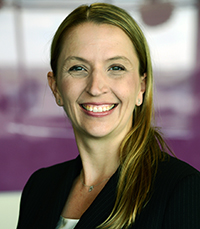
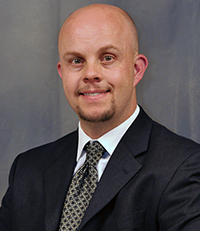
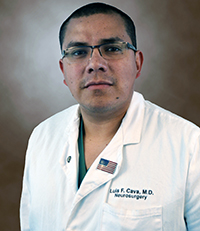
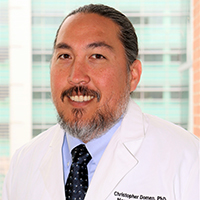
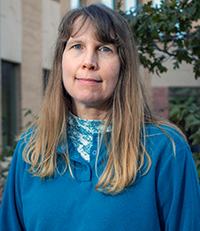
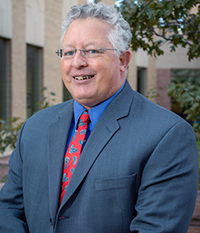
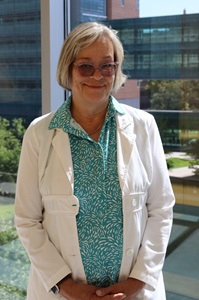
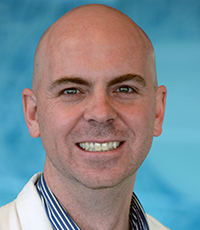
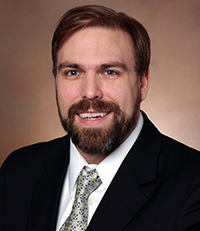
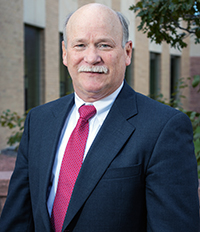
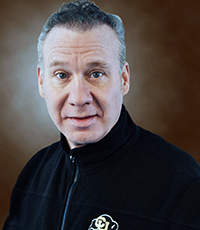
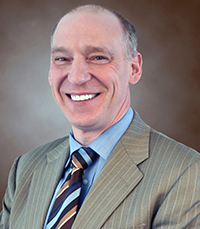
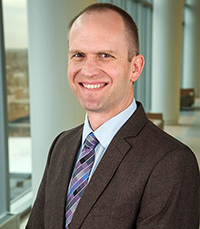
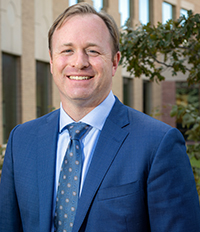
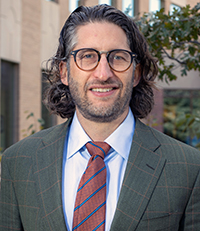
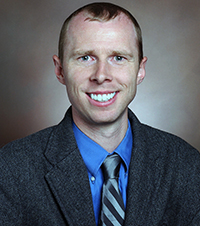
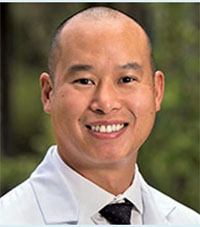
.jpg?sfvrsn=ab0d24bb_2)
